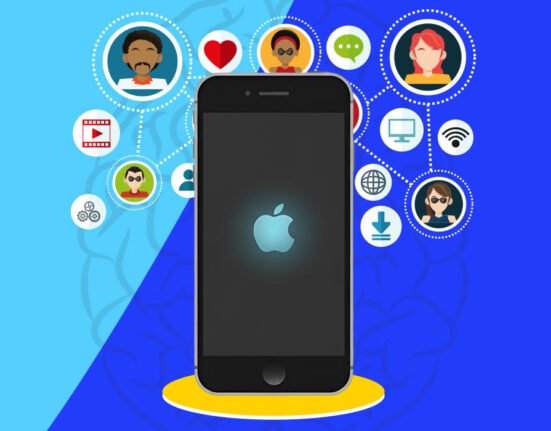Early work experience impacts long-term career satisfaction. These early jobs, which often began in high school or college, build fundamental, employability skills, such as communication skills, problem-solving, and adaptability to workplace environments—referred to as an “invisible curriculum” (Brown & Ellis, 2021). These experiences help students clarify career interests, improve confidence, and build professional networks, which leads to a career of better fit and reduced stress (Ng & Feldman, 2020). Evidence shows that those with early experiences earn higher pay decades later and will report greater job satisfaction as well (Johnson, 2019).
Internships and entry-level positions introduce individuals to the professional environment, shaping the decision-making process regarding careers and influencing the success of individuals’ careers in the long run (Green & Mitchell, 2022). Overall, early professional experiences contribute to the development of the overall workplace experience into something meaningful and satisfying (Rao, 2020).
Read More: How to Speak so that People Will Listen: Psychology Behind Communication
The First Impression Effect: How Early Jobs Set the Tone
The environment, the amount of work, and guidance received during one’s first job have a lasting effect on all subsequent positions in a career (Hirsch & Baruch, 2020). A supportive and thoughtful environment promotes a sense of belonging; employees who perceive support and welcome during onboarding are 2.6 times more likely to stay with the organisation for three years (Gallup, 2022). Conversely, a hostile environment entrenches burnout into the culture of the workplace (Maslach & Leiter, 2017).
Mentorships, whether formal or informal, help with assimilation as well as confidence-building and understanding of potential career paths; mentees report a 23% increase in having a role model and a 12% increase in feeling validated (Allen & Eby, 2019). Mentorship benefits include support in deciphering workplace values and norms, sometimes referred to as the “hidden curriculum,” critical to first-generation and underrepresented workers (Lee & Gonzales, 2021). Foundational experiences with reasonable workloads and expectations establish how your career values, work-life balance and performance approach might develop over time (Sonnentag & Fritz, 2015).
A company’s commitment to onboarding might not only set measurable goals and anticipated developments, but can increase retention, purpose and esteem for the employee (Bauer, 2019). The mnemonics and experiences in the early stages of one’s career create a lasting impact on all subsequent career decisions, and the resulting fulfilment or lack of it in the work performed (Keller, 2021).
Read More: The Essential Guide to Achieving Work-Life Balance
Learning the Rules of the Game: Habits Formed Early
Prior positions will have a lasting influence on one’s views surrounding productivity, the extent of one’s work involvement, work boundaries, and the balance of personal life with professional life (Clark, 2020). All other things being equal, early work experiences will shape the habits one carries into the subsequent stages of their career (Tims et al., 2014). A culture that values personal time and encourages a psychological detachment (i.e., mentally “pulling away” from work) provides a normative and healthy framework compared to an environment that accepts overwork as the standard expectation that can lead to chronic stress and burnout (Sonnentag & Fritz, 2015).
Evidence demonstrates that without clear boundaries, such as during remote work when boundaries are more easily blurred, employees have difficulty detaching from work, thus resulting in increased stress, decreased sleep quality, and ultimately reduced productivity (Derks et al., 2021). On the other hand, early co-constructed experiences with structured work hours, supportive administration, and the possibility of flexible employment, reinforce sustainable habits (Greenhaus & Allen, 2019).
Early adoption of knowing how to draw boundaries (e.g., knowing work hours and how to articulate limits) increases the chance of future sustainable well-being and sustainably productive involvement (Clark, 2020). These early experiences also create norms of acceptability, and once those experiences become expected behaviour, it is more difficult to reconsider expected behaviour as normatively unhealthy (Maslach & Leiter, 2017).
Read More: Remote Work and Mental Health: Navigating Isolation, Role Confusion, and Digital Fatigue
Resilience or Resentment: The Emotional Blueprint of Work
Initial work experiences serve as the emotional scaffold of one’s career, instilling both confidence and well-being through exposure to either abusive cultures or supportive mentors (Grant & Parker, 2019). Workplaces that abuse their power through constant pressures, damaged interpersonal relationships, or a lack of autonomy can undermine one’s self-confidence and self-esteem, while simultaneously distressing the employee and increasing the odds of burnout and turnover (Maslach & Leiter, 2017).
Incidents of unwanted pressures can be counterbalanced with caring mentors (Allen & Eby, 2019). Mentors provide important information in the stress-inducing transitions at the beginning of a career, allowing the young person to re-frame the workplace experience or triggering cognitive reappraisal, enabling someone to regulate their emotions and build career confidence over time (Gross, 2015).
Individuals who develop effective coping strategies at the beginning of their careers are substantially better equipped to handle workplace demands and develop career curiosity, situational control, and ultimately, long-term career satisfaction (Ng & Feldman, 2020). Emotional work experiences don’t just indirectly influence immediate well-being. Connections to earlier work experiences often create long-standing patterns of resilience or resentment (Grant & Parker, 2019).
Read More: Improving Workplace Satisfaction, Motivation and Productivity Using Positive Psychology
Rewriting the Script: Unlearning What No Longer Serves You
Early experiences at a job impact the beliefs a person comes to the job regarding self-worth, effort, and sense of belonging, and even contributing to the team (Rao, 2020). Toxic environments can plant the seeds of self-doubt or perfectionism, and poorly designed feedback systems can create a fear of feedback, shy thinking, and risk aversion (Edmondson, 2019). However, self-awareness of the feedback given and the developed outcome is a gift that lets professionals rewrite these narratives (Brown & Ellis, 2021).
Recognising the emotions attached to thinking and the triggering narratives and emotions can lead to a person understanding their patterns, stemming from negative experiences, of self-limitation and even outline the frustration of needing to be evaluated and lack of engagement when feedback is given (Gross, 2015). Writing, feedback loops, and mindfulness support this opportunity to generate self-awareness to identify abandoned blind-spots (Langer, 2014). Research indicates that people who seek feedback and recognise and practice emotional regulation have greater internal resilience to challenge unhelpful narratives (Grant & Parker, 2019).
For example, a person who has internalised that overworking is a measure of their value can intentionally shift productivity frameworks to focus on sustainability and boundary-building (Clark, 2020). Positive experiences after the fact—for example, working with empathic leaders or being part of a psychologically safe team- can also change the beliefs established in previous experiences and can begin to replace depletion with resilience (Edmondson, 2019). As with any effort, there is energy to become a lot more self-aware of the patterns the past would have called habitual. Old habits are a part of experience, not destiny, and can fuel data for growth if a person consciously attempts to shift sides of the bed to readjust the narratives (Langer, 2014).
Read More: Perfectionism, Overplanning & Imposter Syndrome: Causes, Effects, and How to Overcome Self-Doubt
Conclusion
Experiences in early jobs establish a strong emotional and behavioural template that drives career satisfaction throughout life. The environment, support, and workload faced in early work shape the expectations around their next role, while also affecting attitudes toward boundaries, engagement, productivity, and work-life balance. Supportive cultures, deep levels of support, and strong mentorship established resilience, confidence, and adaptability; while toxic cultures led to burnout and a potentially permanent emotional scar.
These imprints, however, are not permanent. With self-awareness and later positive experiences that are reinforced, individuals can identify and unlearn an unhelpful cycle of behaviours—like connecting overwork with worth—and rewrite those beliefs into more healthy and sustainable behaviours. In the end, the first career will set the overall script, but through continuously reflecting and growing, professionals can ultimately rewrite the script in a way that supports their long-term well-being and fulfilment.
FAQs
1. Why do early work experiences matter for long-term satisfaction?
Because they establish work habits, expectations, and emotional associations that influence future career choices and overall job fulfilment.
2. How can a toxic first job affect future career behaviour?
It can create burnout patterns, low self-worth, or unhealthy overworking habits that persist until consciously unlearned.
3. What role does mentorship play in early career success?
Mentorship helps newcomers adapt to workplace norms, build confidence, and receive constructive feedback that boosts long-term resilience.
4. Can negative early experiences be reversed?
Yes. Through self-awareness, reflection, and positive later experiences—such as supportive leaders or mindful practices—unhelpful beliefs can be replaced with healthier ones.
5. Do early jobs influence earnings later in life?
Studies suggest that individuals with early work or internship experience tend to report higher earnings and job satisfaction decades later.
References +
Allen, T. D., & Eby, L. T. (2019). The Oxford handbook of mentoring and coaching. Oxford University Press.
Bauer, T. N. (2019). Onboarding new employees: Maximising success. Society for Human Resource Management.
Brown, K., & Ellis, J. (2021). The invisible curriculum of work: Learning employability through early experience. Routledge.
Clark, M. A. (2020). Work-life boundaries and well-being: The impact of early career experiences. Journal of Occupational Health Psychology, 25(3), 310–324.
Derks, D., Bakker, A. B., & van Wingerden, J. (2021). Remote work and psychological detachment: The role of boundaries. European Journal of Work and Organisational Psychology, 30(4), 567–581.
Edmondson, A. (2019). The fearless organisation: Creating psychological safety in the workplace for learning, innovation, and growth. Wiley.
Gallup. (2022). State of the global workplace report 2022. Gallup Press.
Grant, A. M., & Parker, S. K. (2019). Redesigning work design theories: The rise of relational and proactive perspectives. Academy of Management Annals, 13(2), 632–659.
Green, P., & Mitchell, L. (2022). Internships and employability: Pathways to professional identity. Springer.
Greenhaus, J. H., & Allen, T. D. (2019). Work-family balance: A review and extension. Annual Review of Organisational Psychology, 6, 72–101.
Gross, J. J. (2015). Emotion regulation: Current status and future prospects. Psychological Inquiry, 26(1), 1–26.
Hirsch, P. M., & Baruch, Y. (2020). The psychological contract and early career outcomes. Human Resource Management Review, 30(2), 100–110.
Johnson, M. (2019). Early work experience and lifetime job satisfaction. Sage Publications.
Keller, S. (2021). Career pathways and psychological attachment to work. Routledge.
Langer, E. J. (2014). Mindfulness. Da Capo Press.
Lee, C., & Gonzales, L. (2021). The hidden curriculum in early career transitions: A mentoring perspective. Journal of Career Development, 48(5), 512–526.
Maslach, C., & Leiter, M. P. (2017). The truth about burnout: How organizations cause personal stress and what to do about it. Jossey-Bass.
Ng, T. W. H., & Feldman, D. C. (2020). The relationship of early work experiences to career outcomes. Journal of Vocational Behaviour, 118, 103-112.
Rao, S. (2020). The psychology of work identity formation. Palgrave Macmillan.
Sonnentag, S., & Fritz, C. (2015). Recovery from job stress: The stressor-detachment model as an integrative framework. Journal of Organizational Behavior, 36(S1), S72–S103.
Tims, M., Bakker, A. B., & Derks, D. (2014). Daily job crafting and the self-efficacy of employees. European Journal of Work and Organizational Psychology, 23(1), 91–107.













Leave feedback about this